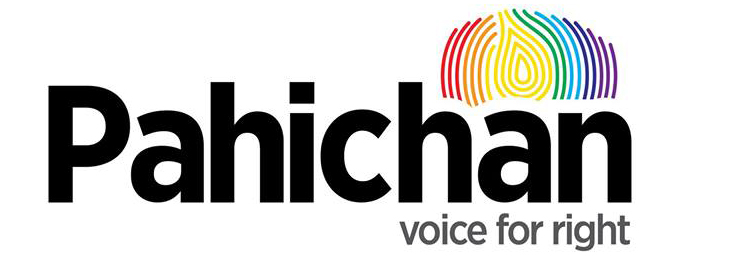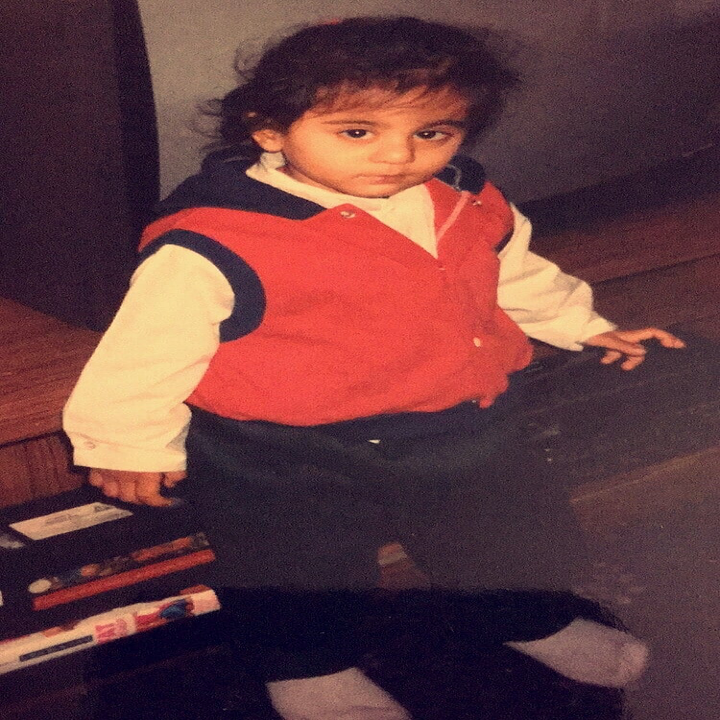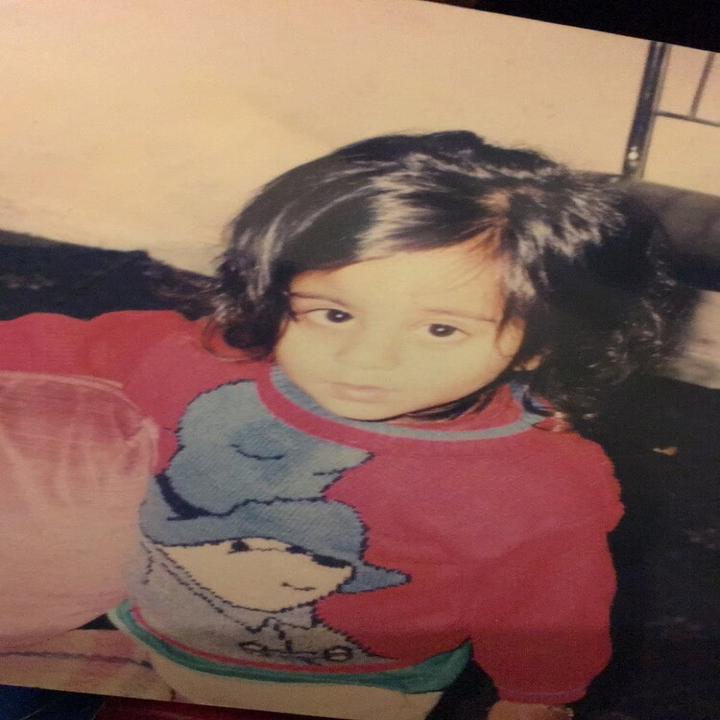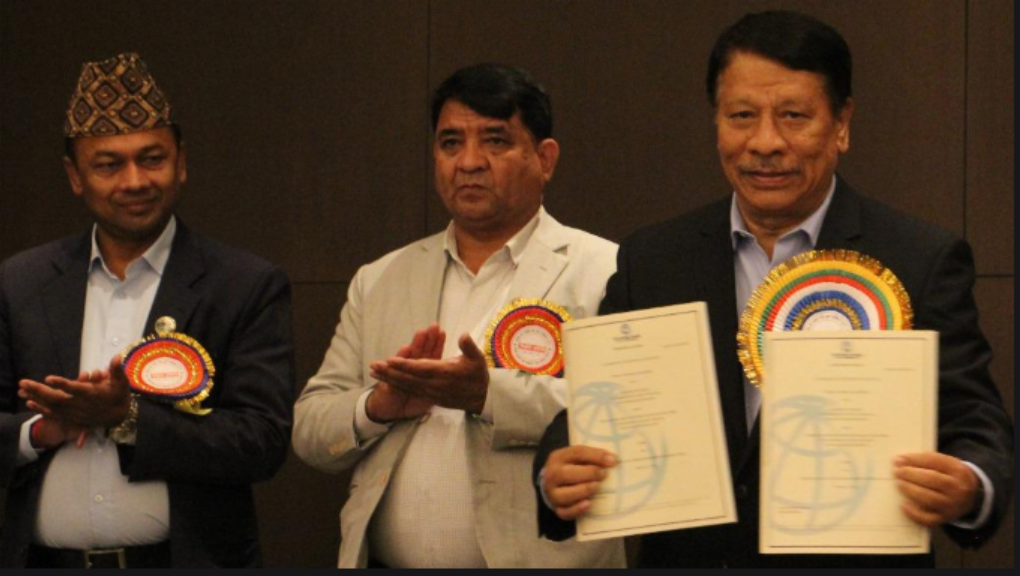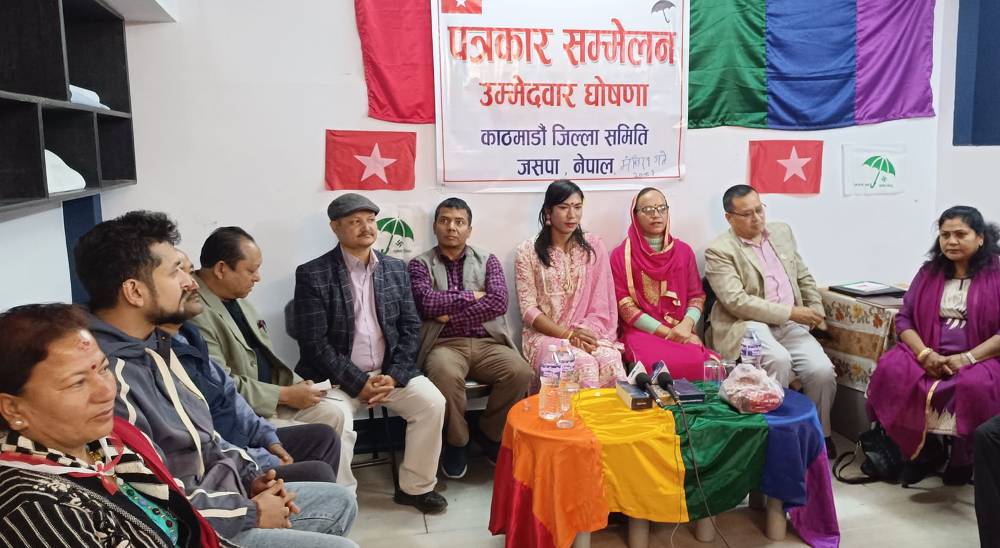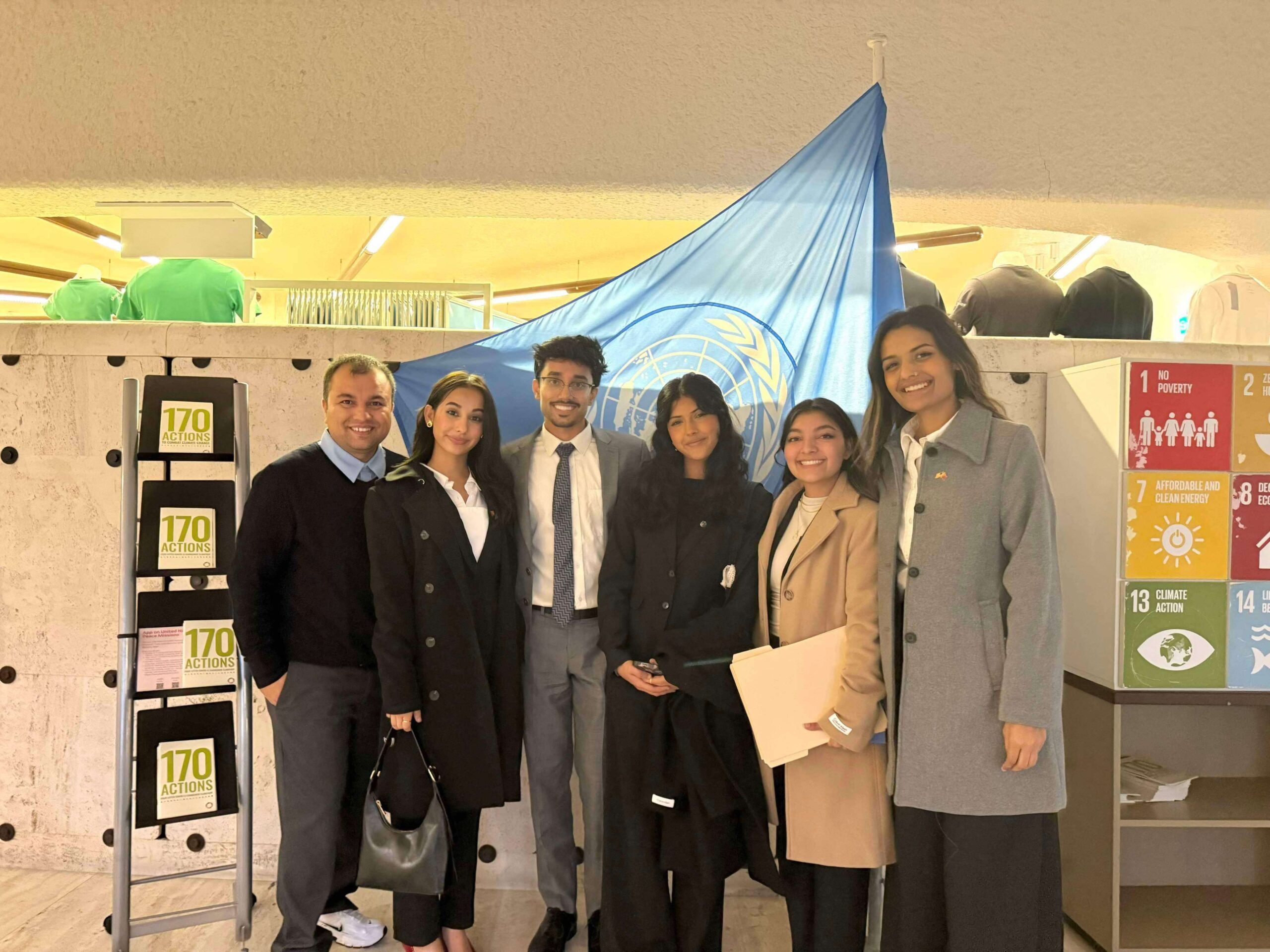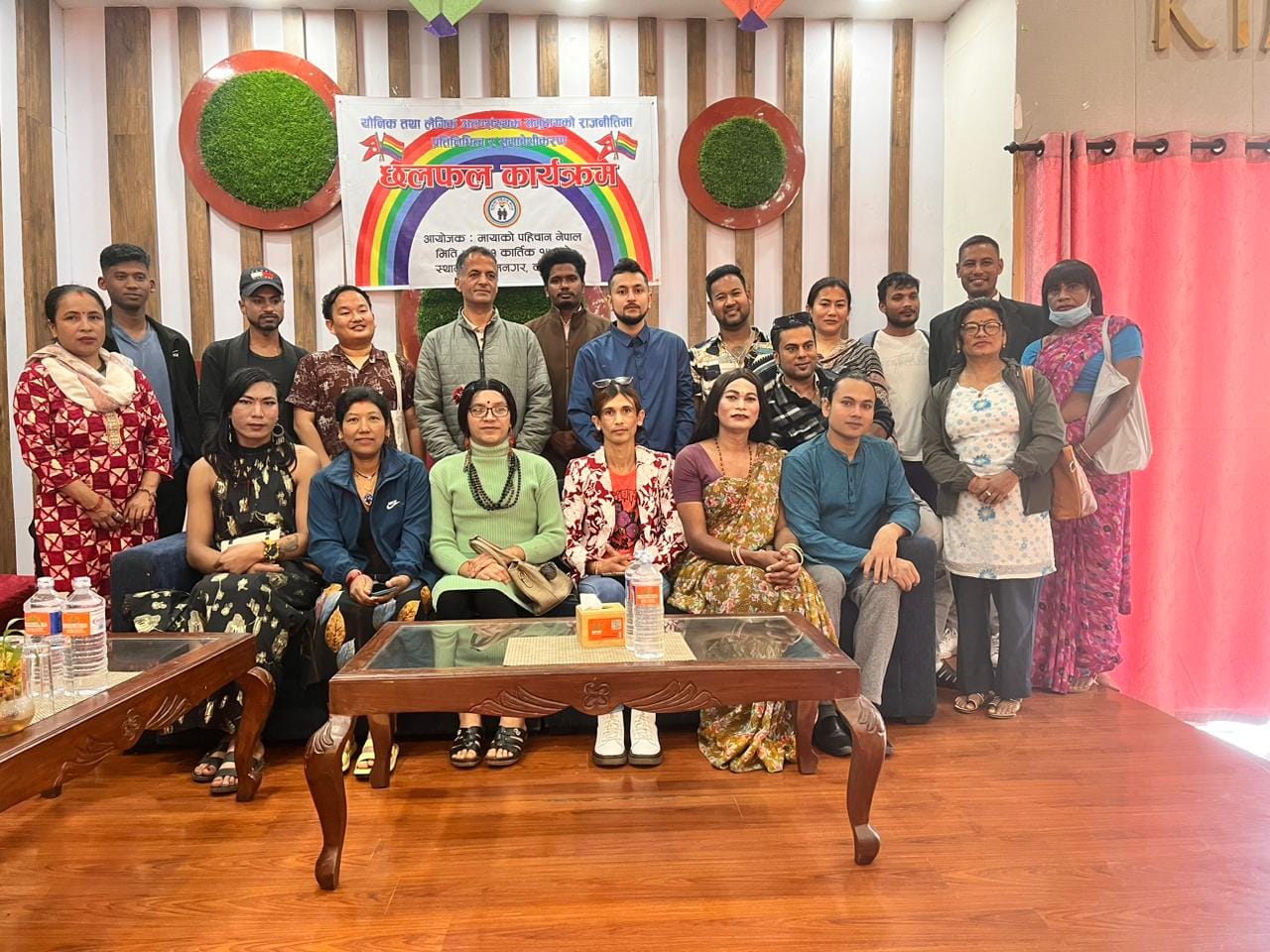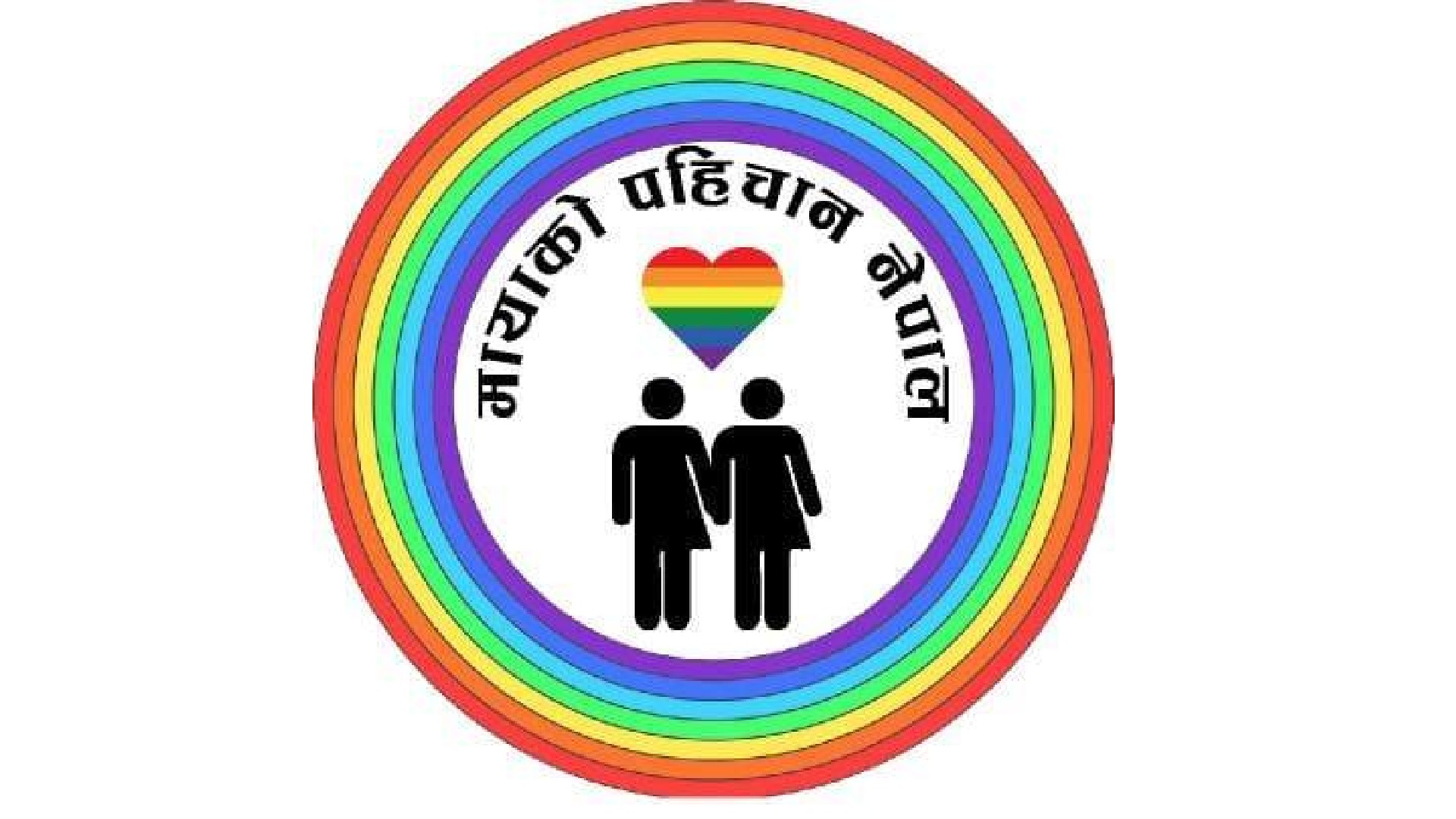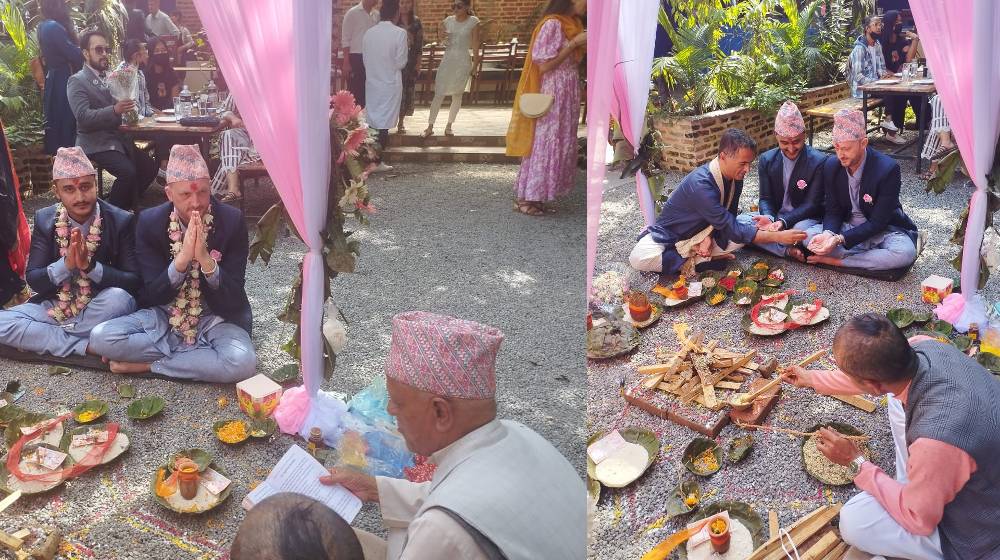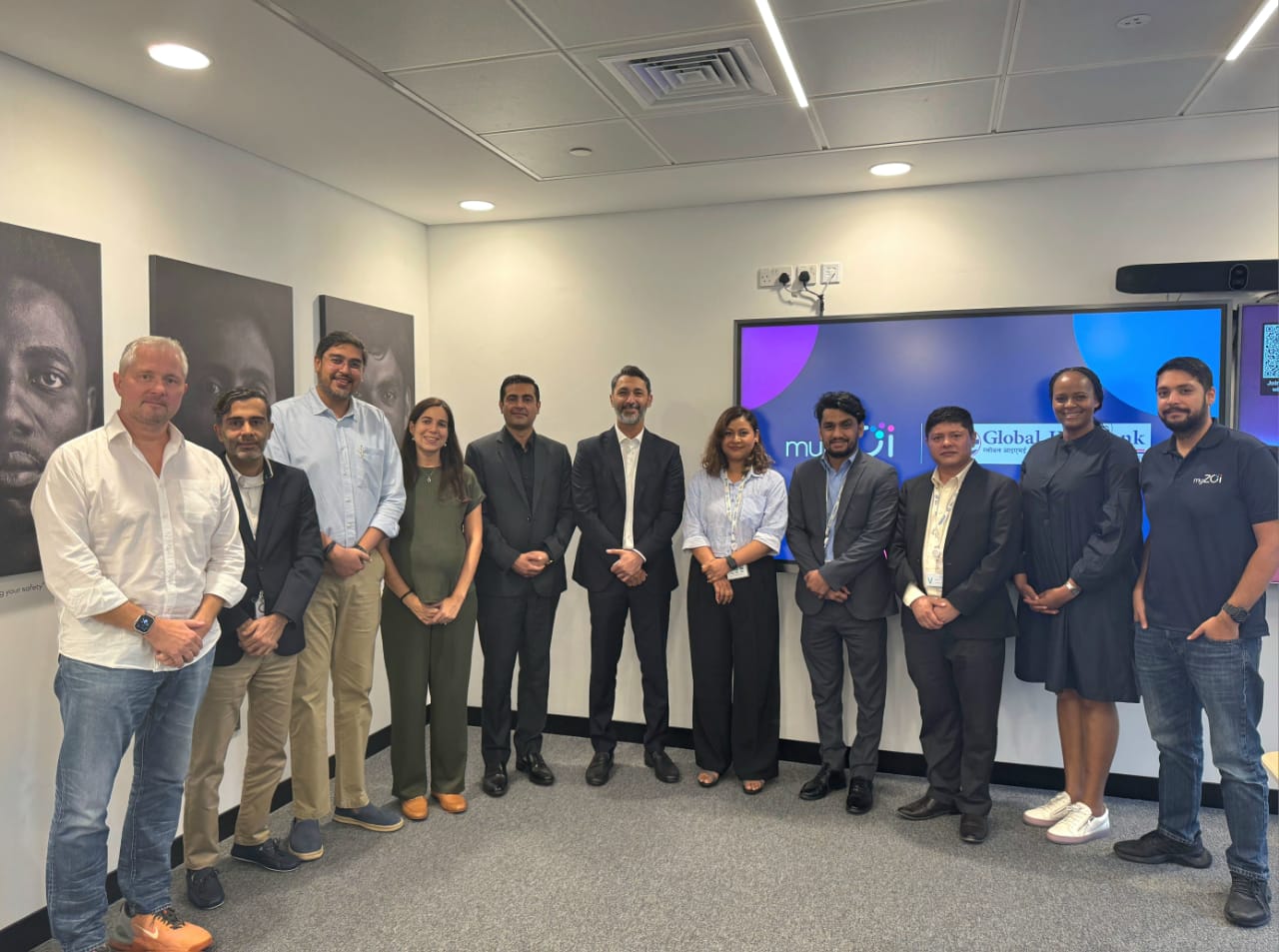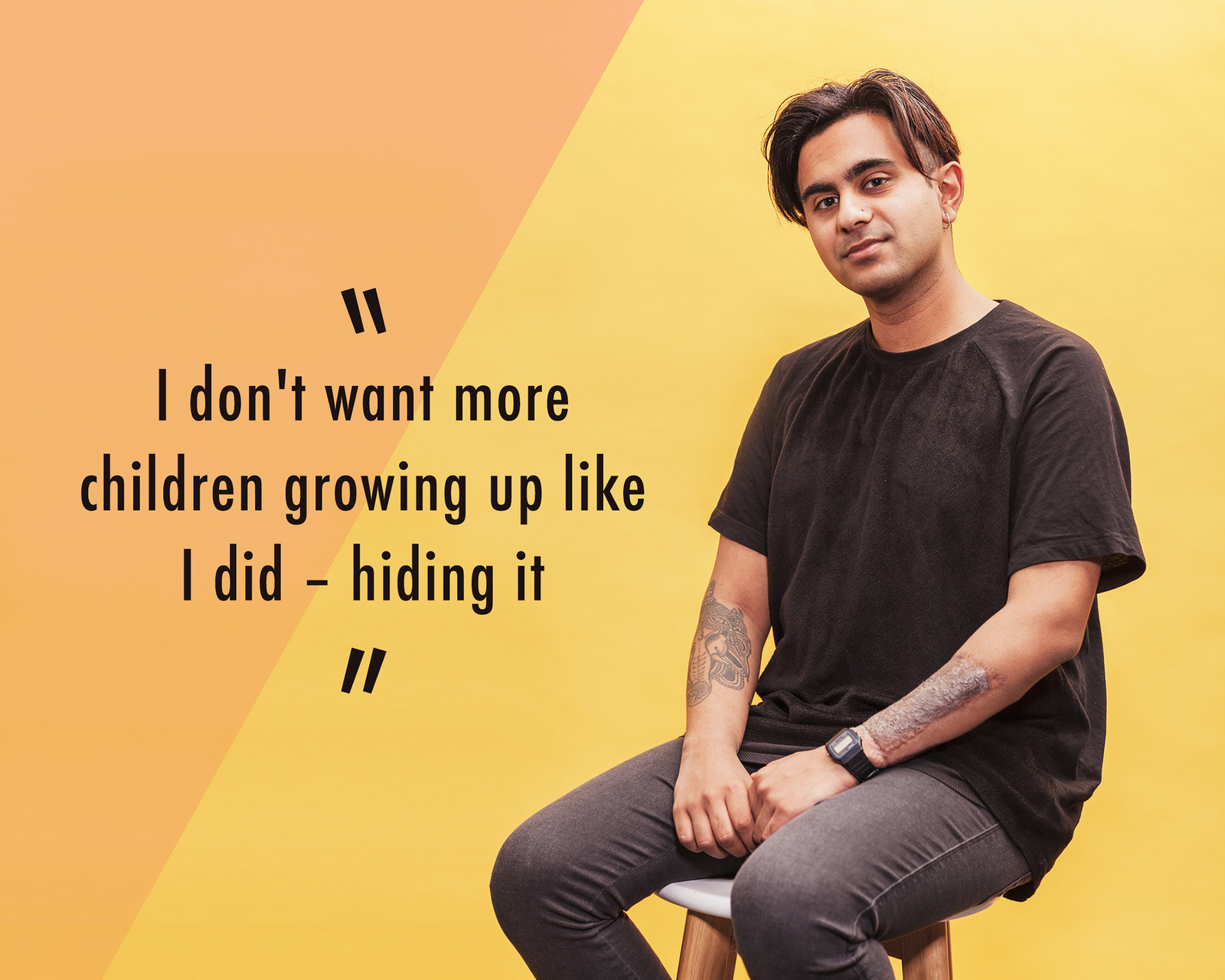
Kathmandu (Pahichan) December 5 – Doctors knew there was something different about Anick shortly after he was born. His penis was unusual – much smaller than most boys’, and with an opening along the side. They explained what they could to his parents, but they didn’t know what it would mean, or what the future held.
They also could not foresee what shame would do to him, or how much he would have to fight when he couldn’t bear the silence any more.
“I never thought that one day I’d be doing something like this,” says Anick, sitting in the BuzzFeed News office, “actually talking about what was originally the biggest secret of my life.”
He is here because he needs people to understand what it is to be intersex. Very few others in Britain have ever spoken publicly about it. He hopes that finally people will begin to discuss a basic fact of life: that a lot of people’s bodies are not entirely male or female. “I don’t want more children growing up the way I did – hiding it,” he says.
The ramifications of Anick’s story are wider and more fundamental than first appears. They begin to unpick long-held assumptions about sex and gender, and raise troubling questions for the medical profession. Is it really biology that governs whether a baby (or indeed an adult) is deemed male or female, or is it society? Who decides where the line is? And should doctors ever intervene?
In October, the Care Quality Commission – the independent healthcare regulator – demanded answers from Britain’s most celebrated children’s hospital, Great Ormond Street, after a BBC investigation accused the hospital of “not meeting care standards for intersex children”. There was, according to the broadcaster, no psychological help for intersex patients, a lack of discussion with the children before life-changing procedures were performed, and a lack of information for parents to be able to give informed consent to operations.
The findings tally with Anick’s experiences. But before discussing the wider picture for intersex children, he begins to describe what happened to him as he was growing up. Memories surface in rapid succession, detail after detail, like a flipbook of Polaroids. His delivery is matter-of-fact, almost unemotional, but as layers of experiences unfold –isolation, surgeries, secrecy – it seems this is the only way he can do it.
A vast scar covers his left forearm. Fleeting gestures belie his nerves: fidgeting with his clothes, combing fingers through his hair, smiling often. He asks that we don’t use his surname.
He says he is lucky, that it could have been so much worse. But the consequences of what he has endured reverberate far beyond the marks on his body. It is this that has led him to speak out and explain for the first time who he is.
Anick was born two months premature, in Leicester, on 3 April 1995, the youngest of three in a Hindu British-Indian family. Not only was the size of his penis below the standard range, but the opening of the urethra – where urine comes out – was not at the end, but lower down the shaft.
This difference, in which typically the urethra doesn’t extend all the way to the tip of the penis, is called hypospadias and is found in about 1 in 250 boys. When combined with either an undersized penis or undescended testicles it can alert doctors to a range of intersex conditions.
Intersex, therefore, is not one state but an umbrella term that covers a range of physical differences from what is generally categorised as typically male or female. Until the mid–20th century people used the word “hermaphrodite”, which is now a largely discarded term. In a medical context doctors use the phrase “disorders of sex development”, which is controversial as it suggests something being wrong when it might merely be different.
Similarly, some intersex advocates prefer not to use the word “condition” to describe physical differences, because this too suggests pathology rather than variety – and so in a more medical context prefer to use “variations of sex characteristic”.
There is also no agreement or comprehensive data on how many people are intersex. Estimates range from 0.05% to 1.7% of the population, depending on which physical variations (hormonal, chromosomal, anatomical) are included.
But there is agreement that intersex manifestations vary enormously. Some include having sex chromosomes that are not XX (female) or XY (male), but a mixture or neither: XXXY, XXY, XYY, or just one X chromosome. And some intersex people have female chromosomes but with features of male reproductive organs – or vice versa.
In other words, a person’s body, either internally or externally, can be completely at odds with their chromosomes, with, for example, ovaries within otherwise male bodies, or internal testes in otherwise female bodies. Many have differences in levels of sex hormone production.
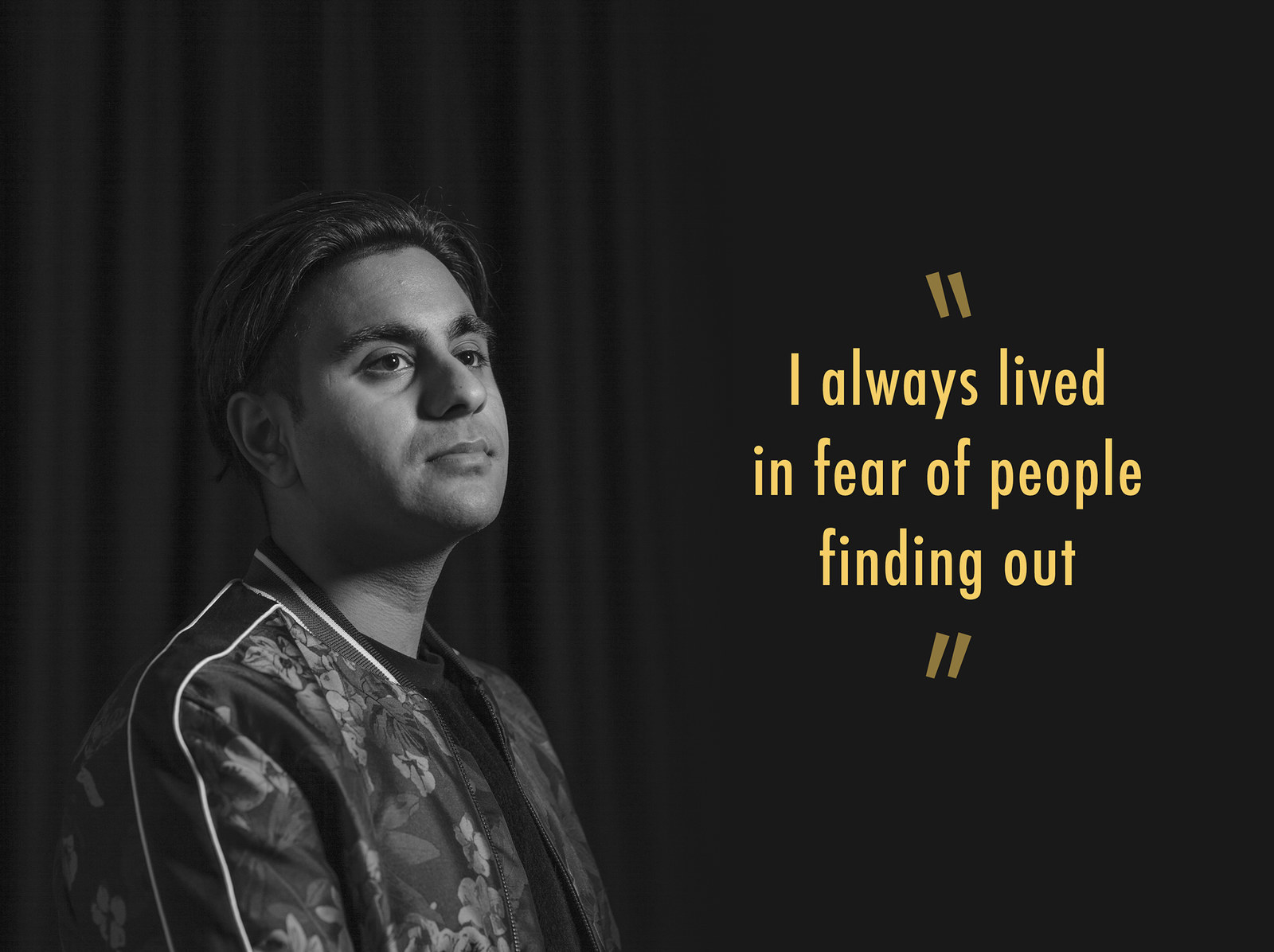
When doctors spotted the way Anick’s penis differed from other baby boys – “I guess it looked like a vagina, as well,” he says – they ordered a DNA test to see what his chromosomes were. The result came back as XY: male. The conclusion therefore appeared simple – he was a boy and would be raised as one.
The decision about the sex of a baby is normally made within a few days. Not, says Anick, for medical reasons, but social ones: “If you find out someone has had a baby, the first question is, is it a boy or a girl?”
Those first few days, then, are the most critical period for intersex people, and can determine subsequent medical decisions and the entire direction of their life.
Anick’s situation was at least clearer than some. “My parents thought, Yes, this is a boy, we were told it is, and the genetic test proves that.”
But the doctors’ conclusion was luck, a product of the time and place in which Anick was born. Even a decade earlier, other babies with very small penises or features that also resemble vaginas could be assigned as female.
Surgery would then follow to construct female genitalia.
Such an intervention was not medically necessary, but an attempt to “normalise” the baby. Indeed, most intersex variations are not medically dangerous, do not cause any physical problems, and sometimes only surface in puberty or adulthood, with some individuals never knowing.
All of which leads to two questions: If Anick was deemed a boy but others in his situation have been deemed a girl, who should decide such a thing, and using which measures?
This quandary rang out from headlines a few years ago when the International Association of Athletics Federations decided to investigate Caster Semenya, the Olympic champion middle-distance runner, to ascertain if she is female. They gave her “sex verification tests”, which can include chromosome and hormone tests, among others. Her case was the first many had ever heard of intersex variations.
But it illustrated that the line between male and female is – when all types of bodies, hormones, and chromosomes are considered – not an objective, scientific fact, but human interpretation. A social construct. As such, sex begins to look more like race: not biologically one or the other, not even a spectrum, but a complex, overlapping 3D picture. The divides are subjective.
The long-held view, therefore, that sex is strictly biological (male, female) whereas gender (masculinity, femininity) is social, comes unstuck. It leads to a further, fundamental question: Whatever the sex or gender, however it came about, is a person’s sense of self not the most profound consideration, and the most in need of recognition?
Doctors do not always become involved in intersex children. When they do, such as when performing genital surgery, it is highly contentious: If not medically necessary, and lacking informed consent, then how, say activists, can it be right? In 2015, Malta became the first country to outlaw surgery or other interventions on intersex children without informed consent.
Given this complicated context, Anick considers himself fortunate to have been left to develop as male. He attempts to explain the previously routine approach of doctors turning ambiguous genitalia into vaginas by quoting – with more than a little distaste – a line in a medical book he once read: “It’s easier to dig a hole than it is to make a pole.”
Although crude in the extreme, the phrase resonates through the last 22 years of Anick’s life as he came to understand what lay behind it: the extraordinary struggle of even attempting to extend what is there.
As a baby he was referred to an “ambiguous genitalia clinic” for specialists to decide what to do. There was no right answer. Complicating everything was the fact that it was impossible to predict how his body and genitals might change. All the specialists knew was that as well as the hypospadias, Anick has a rare phenomenon called androgen insensitivity syndrome (AIS) – one of a cluster of hormonal differences in intersex people.
“It means my body didn’t respond to the hormones in the way it was supposed to,” he says. In AIS not only does the individual underproduce testosterone but they also do not adapt to it in a typical way.
Surgeons first operated on Anick at 4 months, treating the hypospadias by trying to move the opening of the urethra to the end of his penis. They used part of his foreskin to cover the original hole. It failed and was redone several times until Anick was 5. As a result of the multiple procedures he suffered repeated painful urinary tract infections.
This was just the beginning. The next 17 years would be governed by one major preoccupation among clinicians: attempting to enlarge his penis to within the usual range. “The standard of care,” says Anick, was about “making me appear more ‘normal’”.
The result of this medical path was that as young as 4 or 5 he remembers being in the paediatric ward of his local hospital, unclothed, being examined; “doctors and nurses around me just looking at my genitals,” he says. This would happen every six months, often with medical students also present.
“All you can hear in the background is kids’ music or Thomas the Tank Engine.” Then, he says, “they would look at my body and touch and prod at my groin to see if things were OK.” They were trying to gauge whether his penis was growing or responding to any postnatal testosterone. It did not.
“I didn’t really understand anything,” he says, “Nothing was explained to me, so at a young age I didn’t know what was going on – you feel fine but you are at the hospital.”
Anick begins to explain what this is like, but it is as if he is searching for perspective on his early life when he has nothing with which to compare it.
“I used to feel like I was a freak,” he says, “like there was something wrong with me, that I didn’t know [what it was], that everyone else could see once I was naked. It looks normal to you.”
The doctors, he says, pitched their explanations to his parents, not him. “I was never really spoken to in terms of, ‘This is what we’re checking,’ it was just, ‘This size is not normal.’”
At 10, the doctors started giving Anick testosterone injections in the hope they would stimulate growth in his genitals. He still had not heard the word “intersex” and didn’t understand why he was being given hormones, let alone what they would do.
The testosterone caused his testicles to drop, as well as prompting weight gain and body hair growth, but his penis remained the same. “It looked exactly how it was from when I was about 5 or even younger.”
As he talks about his genitals, plainly, glancing around the office, there is none of the awkwardness many might exhibit doing this. It is the reverse of the shame he felt growing up.
No one other than his mother, father, older brother, and sister knew anything about his situation. It was a family secret. “Home was my sanctuary,” he says. It was the only place he did not have to hide.
His school never knew – not a single pupil or teacher.
“I always lived in fear of people finding out,” he says. “All I knew was that I had a really small penis, so can you imagine what would happen round school if people saw it? I felt I would be bullied, or no one would ever be my friend, or like me.”
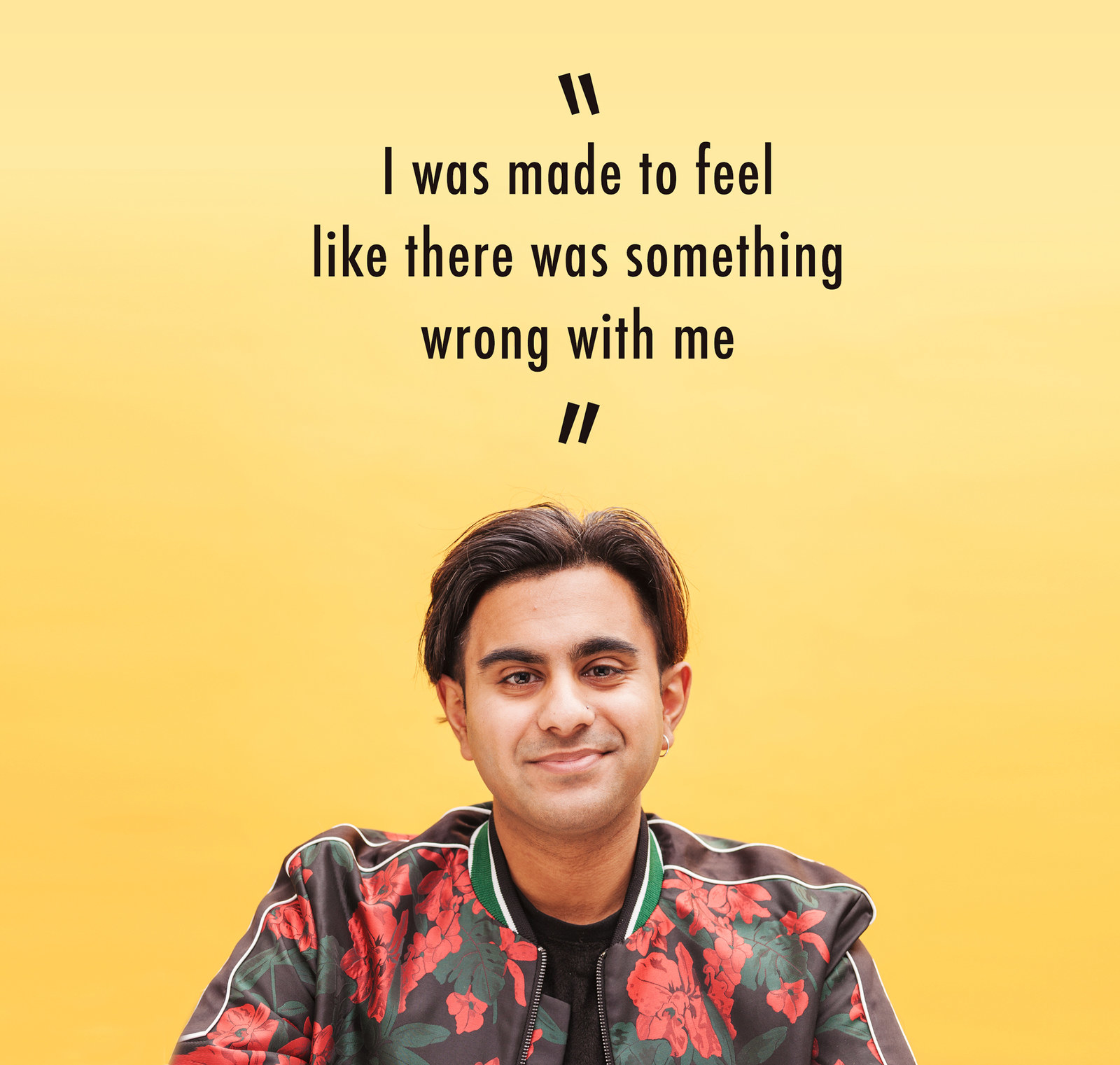
As a result, he says, “I used to hate PE, I never used a urinal growing up, and whenever I went swimming I’d always make sure I was separate from anyone else, but no one understood why.” He even avoided wearing tight trousers.
His brother would protect him, ensuring no one could see him unclothed. “Whereas my dad,” says Anick, “was like, ‘It’s your body, don’t be ashamed of it.’” He stops for a moment and looks down.
“It’s hard for my parents because they don’t want me to hate my body, but when you’re going through it it’s completely different.”
At 11 or 12 – he does not know exactly – doctors told him they thought he might have a “disorder of sex development”, without, he says, framing that as a medical term for intersex. And without any certainty. “They said, ‘We’re not sure if it’s a disorder of sex development because everything else appears normal.’”
His parents would explain to him what they knew but, he says, they did not know a lot, and doctors could not predict where he was heading physically. He received no help psychologically to cope with what was happening.
“Imagine going through school, learning about the human body, learning about sex and relationships, and just not fitting in anywhere, not knowing what to say to people and hiding about everything,” he says. Kids at school “used to speculate different things about me. They always used to wonder why I was always on my own.”
They would also say he was gay, he says, and bullied him for it. They wondered why he did not conform to the masculine ideal expected of boys.
“It made me feel like I really don’t fit in with men or women, and there was no one else like me,” he says. “I didn’t know where I belonged. I’ve never been a very masculine or feminine person. I was always somewhere in between. I’ve always thought, Well, what is a boy? What is a girl? Because it’s not as easy [a question] as people think.”
His family exerted no pressure on him to conform, however. But having had long hair as a child, as he grew up he cut it short, to fit in with the other boys.
With the hormone injections not increasing the size of his penis, Anick was left wondering whether anything more could be one. And so at 12 he began googling to searching for answers. He found a specialist in London – a consultant urologist known for treating conditions like Anick’s. “I was with my mum and said, ‘Look! They can do these surgeries to make your penis look normal.’” He asked his paediatrician for a referral.
This led – aged 14 – to the first surgery aimed at making his penis appear larger. It was, essentially, a tummy tuck: removing fat he gained as a result of the hormone injections from his groin in the hope that it would bolster the appearance of his genitals. “That didn’t do anything,” he says.
By then he had already spent several years trying to focus on activities that appeared to be completely unrelated: volunteer work, youth work, and being a radio presenter for a children’s charity. But really these were fuelled by his feelings about his body and the silence encasing it: If ever anyone found out about him, he reasoned, at least he would be known for more than simply his physical difference.
The following year, aged 15, the isolation and alienation from others around him became overwhelming. He sunk into depression and took an overdose of paracetamol. “I couldn’t see a future being intersex,” he explains.
But he was not referred for counselling either to cope with what he was feeling or to discuss the implications of hormones and surgery. This is despite “80% of my medical notes being phrased ‘is concerned with the size and appearance of his genitals’.”
He adds, “It’s almost as if it was understandable and expected for me to have surgery without the need of talking things through. That reinforced the idea that I wasn’t normal.”
At 18 he was offered the first major surgery to construct a larger version of his penis, a procedure sometimes used for transgender men who want male genitalia. But Anick decided to delay it by a couple of years to be certain it was what he wanted.
“I was made to feel like there was something wrong with me in the first place that needed ‘fixing’,” he says, “Like I needed these ‘normalising’ surgeries.” When in fact, he says, there is nothing wrong with him – just different.
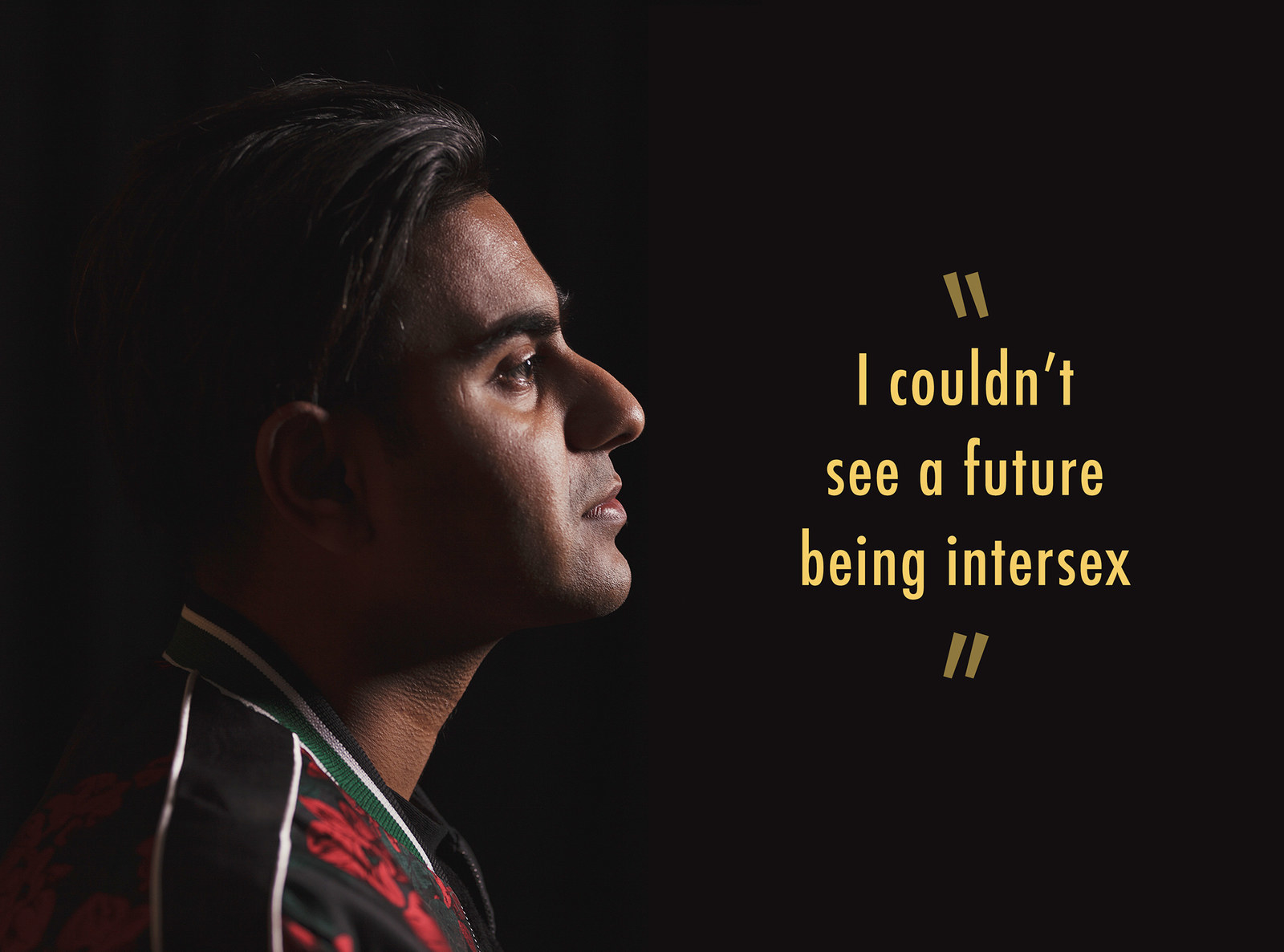
The procedure also carried a significant risk: a 50% chance he would lose sensation. And it would require at least three successive operations: one to remove a huge graft of skin from his forearm to form a tube shape for the new penis shaft, a second in which that cylindrical graft would be sculpted to look more like a typical penis, and the third to insert a small balloon and pump in order to create erections when he wanted them.
By 20, and now studying law at Westminster university, Anick felt as sure as he could that he wanted to undergo the operations. But there was something else he had to do first.
His third year at university was a year abroad, in Sydney. Being thousands of miles away would be liberating, Anick thought – a break from his life of secrecy in Britain. But after a few months, he says, “I felt, ‘I’ve gone to a different country but everything still feels the same – I still don’t feel like I can be myself.” It was this that made him pivot. “I decided I wanted to tell people.”
His sat his flatmates down. They were from all over the world, he says, and “they were really confused”. He resorted to diagrams. “They were like, ‘OK, we’ve never heard of this.’ It shocked me that so many people from different countries had never considered it or heard of it. And that’s when I knew: I need to start talking about this.”
He returned to England, determined. He started by telling his extended family – his more than 50 cousins and second cousins are his closest friends.
“I got about 15 of us together,” he says. And then he revealed the truth. “Everyone was really stunned – they had no idea what to say.” The secret that his immediate family had kept for over 20 years was finally out. “My brother and sister were almost in tears because it was a big moment for all of us.”
His cousins, although initially dumbfounded, reacted exactly as he had hoped. “We all just hugged,” he says. “It was really emotional. But they were saying things like, ‘Why have you kept this a secret the whole time?’ They said they understood me better now. It was a huge relief.”
After that, he set about telling all his cousins. “I did it in tens,” he says, smiling. “I went to different people’s houses. It was like a tour – a coming out tour.” He told aunts, uncles, friends, everyone.
Finally Anick was ready for the big operation.
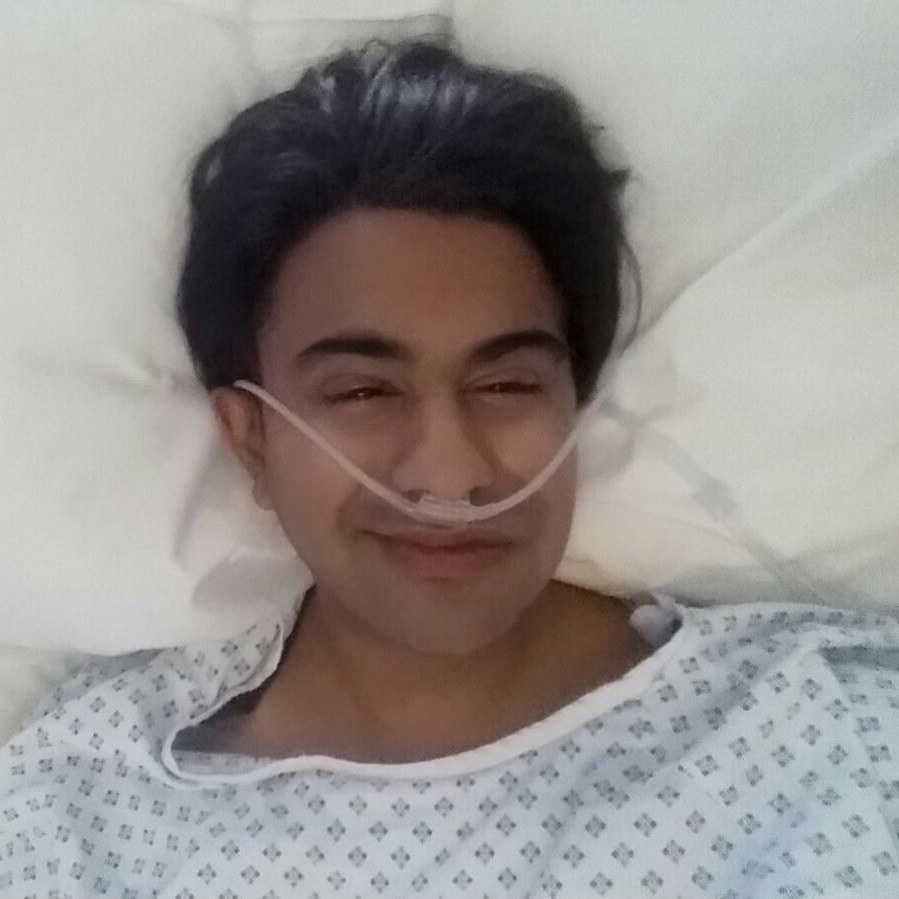
He had already had a large tattoo inked onto his right forearm to camouflage the scar that would be left from the skin graft. But when the time came he asked them to take the skin from his left arm. “I decided that I’m no longer going to want to cover it up,” he says. “It’s a reminder every day of what I’ve been through.”
The complications following the surgery have been multiple and chronic. The expected three weeks afterwards in which he would need to wear a urinary catheter became four months. “The urine did not flow through the new penis and out the end as was planned, but became stuck and infected,” he says. “It burned.” He ended up in A&E.
“It was the most painful thing I’ve had. At the time I was very depressed and thought, Why did I do this?” The catheter meant walking around with a bag. “The amount of times it came undone. I was on Oxford Street and essentially peed myself, without being able to pee.”
Although his glans kept its sensitivity, with the new penis constructed on top of it, Anick’s sensations are purely at the base. “I can’t feel anything in the new penis,” he says. And over a year later he is still in some pain and his penis still bleeds.
“It’s like a war scene,” he says. But he doesn’t regret the operation, even though he still has another two to go before it is complete – he is focused on the end goal. He also doesn’t regret keeping the scar on his arm visible. Some people ask about it. “They say, ‘What’s that on your arm?’ And I’m like, ‘Oh it’s nothing, it’s just my penis.’”
Despite being open about being intersex, Anick says he isn’t yet ready for sexual intimacy, not until the surgeries are complete. “I feel like, how can someone be attracted to something that I hate about myself?” He also doesn’t want to be with someone who likes him despite being intersex, but who loves him completely. He identifies as bisexual.
“I don’t know who I want to date yet,” he says. Previous attempts at online dating have not been successful. “Sometimes I’ve put on the online dating profile ‘intersex’ and some people have said, ‘Oh, that’s really cool, what is that?’ Then I’ve told them and sometimes people don’t reply.’” Other times, he says, “people say, ‘Oh, it’s really amazing that you’re talking about it.’”
After our meeting, he sends a series of texts to try to explain further how he feels about it. “I went through a long time when I didn’t let anyone hug me or get too close,” he writes. “I was too embarrassed or anxious that they’d be able to tell something was different. I also put on lots of weight at points as I used food as a way of coping.” And when people assumed he was gay, “it was easier for me to play along with that and use it as an excuse than to come out as a ‘freak’ and be bullied.”
He has never met another intersex person.
Beyond his own situation, Anick wants the treatment of intersex people in Britain and around the world to be transformed: for passports, birth certificates, and all official forms to include provisions for those whose sex is not simply male or female. He wants full legal acknowledgement of intersex people; LGBT organisations to add “I”, championing intersex rights; and official inquiries into both the scale of the intersex population and how the medical profession has treated them.
For any of this to happen, he says, people need to start talking about intersex people. “It’s not going to happen overnight. But … if the conversation starts it will spread.”
This might then lead to a change in medical treatment. Anick has mixed feelings about his own experiences with doctors. “They were always trying to help me,” he says. “Do I think some of the surgeries could have waited until I could consent? Yes. Did I need to have hormones injected into me before I was old enough to know what they would even do? No.” He and other intersex advocates would like both mental health support offered and a markedly different approach by doctors.
Holly Greenberry from Intersex UK tells BuzzFeed News there must be an end to medical intervention on children without informed consent.
“Human bodies are as variable as the weather and we need to recognise that actually there are bodies that don’t meet standardised norms of male and female,” she says. “Yet medics are absolutely driven to alter that body to best fit a social construct of ‘normality’. Actually you’re removing that person’s right to self-determine their bodily function, their bodily form, their sexuality even, and their right to integrity.”
There are, for example, intersex babies with perfectly healthy but longer than normal clitorises that have been operated on (clitorectomies) in the UK to “normalise” the size, she says – and likens it to female genital mutilation. “It’s unforgiveable. You’re cutting into healthy vascular tissue, which is extremely sensitive with delicate nerve endings. That is not a healthy thing to do.”
Other intersex people have spoken of procedures happening without their knowledge when they were children, such as the removal of internal testes, and only learning about it by accident later in life. Greenwell also questions the need for operating on hypospadias, the condition Anick has, as it can leave lasting damage.
She sees the psychological wounds in intersex young people too. “When you listen to these kids on social media – closed groups – it’s the same story: anxiety around partnerships, fear of being found out, trauma around family, struggles in education and schooling.” And in adulthood, much of this remains, with a large “amount of people who aren’t in partnerships or are living in fear of telling the truth [to their partner],” she says. “We don’t need to live in stigma and shame any more.”
Both Anick and Greenberry also insist that intersex rights must not come at the expense of transgender people. “Our job is to never undermine trans rights,” says Greenberry, “as well as driving forward intersex human rights and equality mechanisms.” The challenges facing both communities are separate but overlapping, with some intersex people assigned the wrong sex at birth, which later requires further medical procedures to reverse.
But as others debate sex, gender, and human rights, Anick tries, for now, to just focus on moving forward, on keeping going. He took a job in a clothes shop after university. He loves it there. “I’m growing more confident,” he says, with a smile that for the first time looks buoyed by hope. “I’m working towards happiness.”
Copy : https://www.buzzfeed.com
